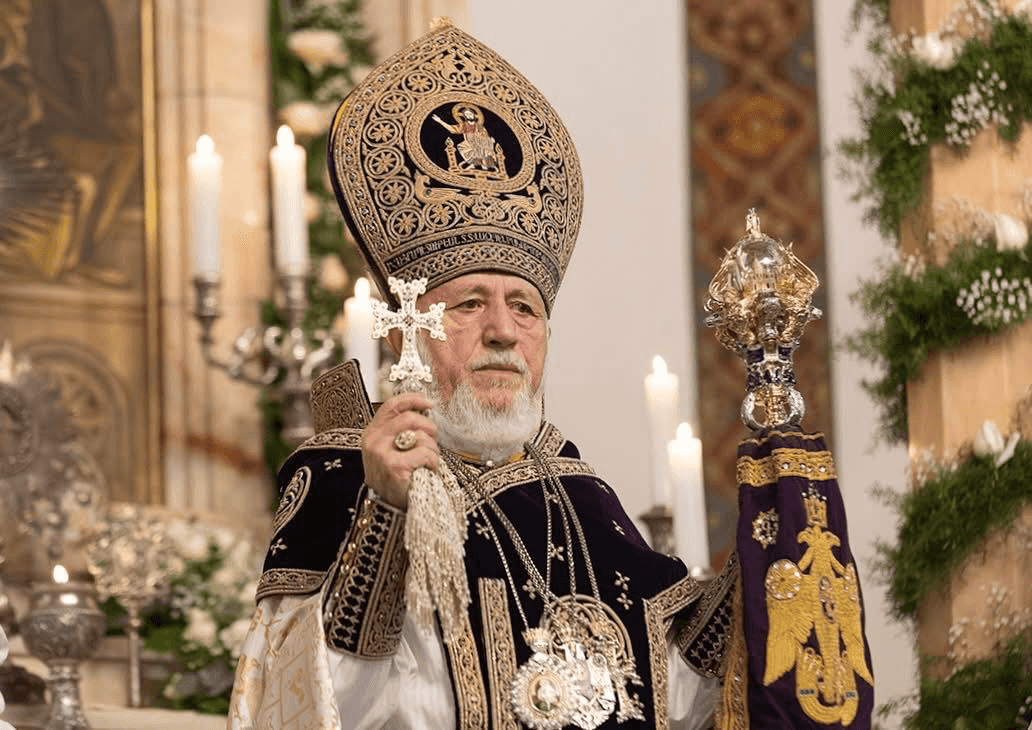
Prime Minister Nikol Pashinyan has hinted that Armenia might return control of four abandoned villages to Azerbaijan in a unilateral handover of territory.
During a visit to the northern Tavush Province on Monday, Pashinyan said that the return of the villages to Azerbaijan could prevent war.
Following the dissolution of the Soviet Union and the outbreak of the First Nagorno-Karabakh War in the early 1990s, several areas along the border of both Armenia and Azerbaijan fell under the control of the opposing side. This included the Azerbaijani villages of Baghanis Ayrym, Ashagi Eskipara, Kheyrimli, and Gizilhajili, which remain occupied by Armenia.
Azerbaijan subsequently took control of large swathes of territory during offensives into southern Armenia in 2021 and 2022.
The issue of the ‘four villages’ has become a frequent part of the Azerbaijani government’s rhetoric on the ongoing peace talks, with officials suggesting they would take the villages by force if they were not handed over unilaterally.
Pashinyan was visiting areas near the border with Azerbaijan around the villages that could be handed over. He reiterated that the delimitation with Azerbaijan could begin in Tavush, in the areas between the villages of Baghanis and Berkaber.
Last week, Pashinyan also stated that the four villages had never been de jure in the territory of Armenia.
He also noted that one of the main roads connecting Armenia to Georgia runs through one of the Azerbaijani villages under its control, and that Armenia should rebuild infrastructure in the area ‘in the near future’.
Pashinyan’s statements were met with some controversy in Armenia, with former defence minister Seyran Ohanyan warning against a handover of the villages because it would advance Azerbaijani positions. He said that the road leading to Georgia through one of the villages was of ‘extreme importance’.
‘In other words, there will be obstacles on the way from Iran to Armenia, Georgia, and Russia’, Ohanyan told RFE/RL.
The proposal was also met with scepticism locally. One resident of Kirants, an Armenian village neighbouring one of the four Azerbaijani villages, expressed concern for the security of their village if this were to go ahead.
‘We will go out alone, go somewhere, they [Azerbaijanis] will catch us, take us away. It will be like that again. We will not be able to go to our land or leave the child to go to school alone’, said the resident to RFE/RL.
In response to Pashinyan’s statements about a potential renewal of hostilities, Russian Foreign Ministry Spokesperson Maria Zakharova blamed the West.
‘What did the new European Union, NATO, and Washington curators do? Please note: this statement is in no way related to Russia. This is the exclusive competence of the current authorities in Yerevan and the result of their consultations with Westerners,’ wrote Zakharova on Telegram.
‘Unlikely to be reciprocated’
The issue of delimitating and demarcating the border has been widely discussed since peace talks began between Armenia and Azerbaijan following the end of the 2020 Second Nagorno-Karabakh War.
In January, Azerbaijan’s President Ilham Aliyev suggested that delimitation with Armenia could begin in the northern section of the border and could be done piecemeal, suggesting the handover of the four villages.
While Pashinyan appeared to concede this on Monday, Armenian officials have previously warned that Azerbaijan may intend to keep control of territory inside Armenia that it holds in the South.
Earlier in March, Armenia’s Deputy Prime Minister Mher Grigoryan told RFE/RL that Azerbaijan was ‘refusing to accept’ that it was occupying the ‘vital areas’ of 31 Armenian villages. He was referring to the large areas of territory taken by Azerbaijani forces in 2021 and 2022.
In response, Azerbaijani Deputy Prime Minister Shahin Mustafayev issued a statement demanding the ‘immediate release’ of the four villages under Armenian occupation. He called talk of Azerbaijan occupying any Armenian territory ‘completely unreasonable’ before the ‘delimitation of the state border’.
Tigran Grigoryan, a political analyst and the head of the Regional Centre for Democracy and Security, told CivilNet that the handover of the villages would be a ‘concession’ on Armenia’s part.
‘The issue of the occupied territories of Armenia will continue to remain up in the air, because most of these territories are located in the south of Armenia’, said Grigoryan.
Grigoryan added that Azerbaijan was not likely to agree on a single map of its borders with Armenia.
‘Even if there is an agreement on the maps, it is not obvious that Azerbaijan will ever withdraw its troops from the territory of Armenia. Baku can find any excuse for not fulfilling this demand’.
‘Moreover, quite direct statements are being made from Azerbaijan, including at the level of the president, that they are not going to release those positions, withdraw the troops from those positions’, said Grigoryan.
During his visit on Monday however, Pashinyan made clear that the priority for Armenia now was to avoid war.
‘Our policy is that we must not allow war, we must not allow war to start. And this is also the reason why we have decided to adjust the border’, he said.
‘This does not change our assessment of the situation, because in this situation it is better for us to stand at our border and be in the role of demanding that you should get out of our border, than to stand in front of our border, knowing that they will use this as a pretext’.









